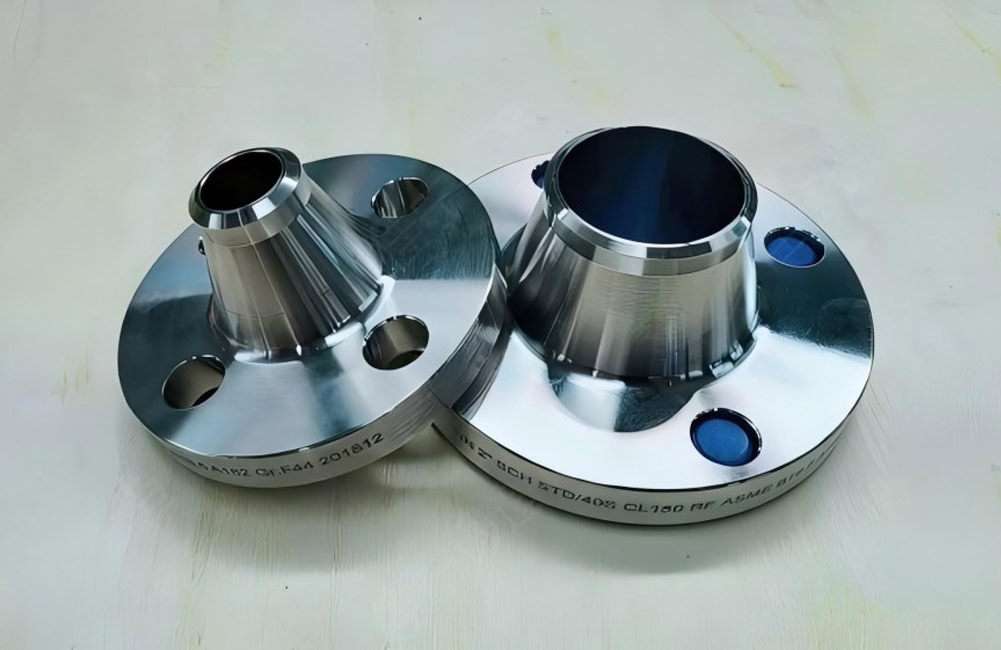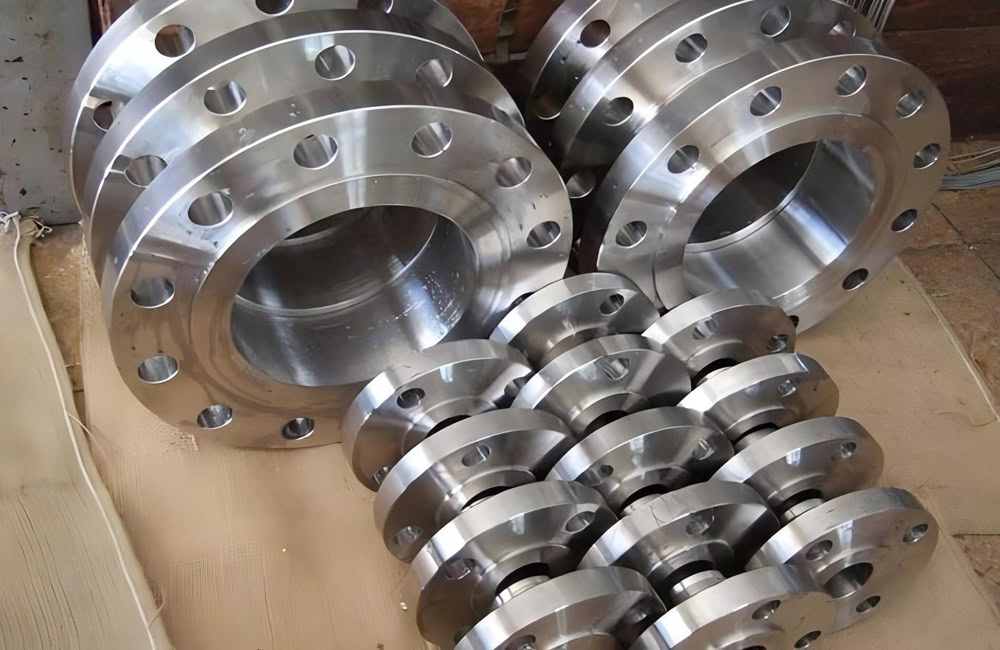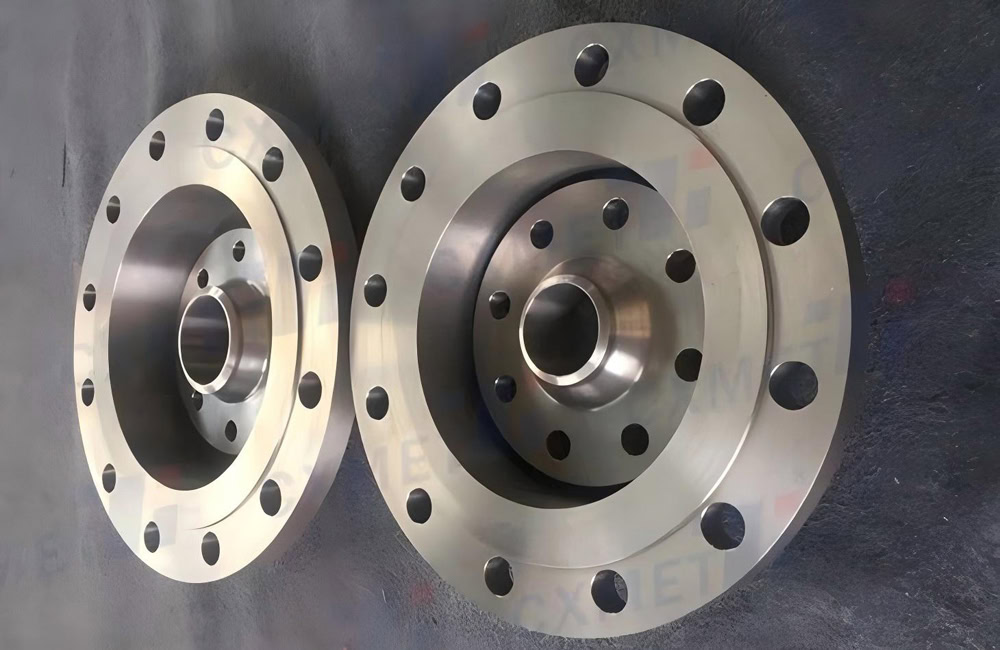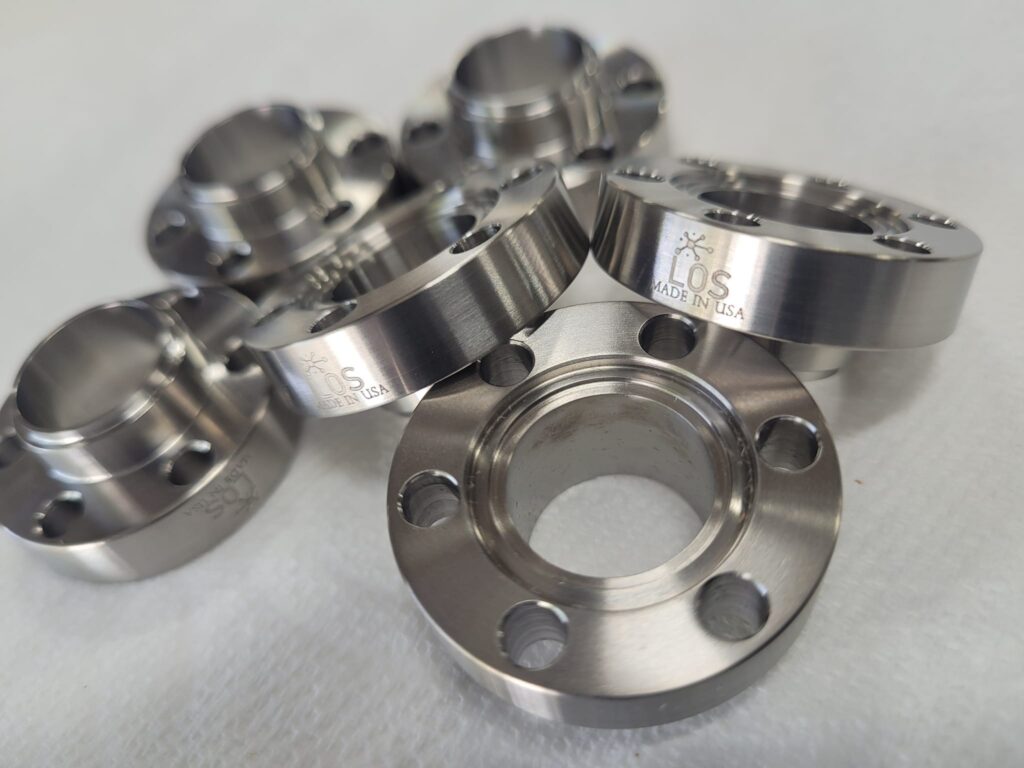Custom Titanium Flange For Energy Industry
Titanium flanges made of titanium or titanium alloy, with these unique advantages, can meet the needs of various complex working conditions in the energy field and have become the ideal choice for many energy companies in pipeline connection solutions.
- Grade 1 Titanium Flange
- Grade 2 Titanium Flange
- Grade 5 Titanium Flange
- Grade 7 Titanium Flange
- PN2.5、PN6、PN10、PN16
- PN25、PN40、PN63、PN100
- Class150、Class300、Class600
- Class900、Class1500、Class2500

Custom Manufacturing Titanium Flanges For Oil & Gas
With the continuous innovation and development of energy technology, the requirements for equipment performance are becoming increasingly stringent. Traditional flanges often seem to be powerless in the face of extreme environments such as high temperature, high pressure, and strong corrosion, and are prone to corrosion and leakage. Titanium flanges effectively solve these problems and provide strong support for equipment upgrades and technological progress in the energy field. Whether it is in nuclear power plants that withstand high temperatures, high pressures, and radioactive media, or in offshore wind farms that deal with humid, high-salt harsh environments, titanium flanges have demonstrated outstanding performance and reliability.

Neck-welded titanium flange is suitable for applications with extremely high requirements for safety and reliability. It has a long neck and is connected to the pipeline by butt welding, which effectively enhances the integrity of the flange-pipe connection. Under high temperature and high pressure conditions, the advantages of neck-welded titanium flange are more obvious.

The connection method of socket-welded titanium flange is to insert the pipe into the socket of the flange and then weld it. This connection method is relatively simple to operate and low in cost. It is generally suitable for pipeline connections with a nominal diameter of less than or equal to DN80, a pressure not exceeding 10.0MPa, and a temperature between -20℃ and 300℃.

Lap Joint Titanium Flange usually consists of a slip-on flange and a flanged nipple. The flange and the flanged nipple can rotate relative to each other. The pipeline will be displaced due to temperature changes, equipment vibration and other factors. The loose-sleeve titanium flange can adapt to these changes and avoid damage caused by stress concentration in the pipeline.

GR2 Titanium
In some energy transmission pipelines with low pressure, such as natural gas transmission branch pipelines in some cities, GR2 titanium flanges can meet the requirements. Its corrosion resistance is also further enhanced, and it has good corrosion resistance in environments such as seawater and some medium-concentration acid and alkali solutions. For example, in the internal pipe connection of the tower of an offshore wind farm.

GR5 Titanium
GR5 is the most widely used titanium grade, and its strength is about twice that of industrial pure titanium. It also has good corrosion resistance and high temperature resistance, and can maintain stable performance in high temperature and harsh corrosive environments. In some high-temperature gas turbine pipeline connections, GR5 titanium flanges can withstand the impact and corrosion of high-temperature gas.

GR7 Titanium
Palladium significantly improves the corrosion resistance of GR7, especially in reducing acid media such as sulfuric acid and hydrochloric acid. In energy and chemical projects using coal as raw materials, waste gas containing sulfuric acid and other substances will be produced. Its performance advantages are indispensable in fields with extremely high requirements for corrosion resistance and high temperature resistance.
Titanium flanges have shown their significant advantages in corrosion resistance, high strength, and light weight, and have shown their important value and broad application prospects in the energy field. Although they are currently facing challenges such as high cost, difficult processing, and imperfect standards, with the continuous advancement of technology and the development of the industry, titanium flanges will surely play a more important role in the energy field and provide solid guarantees for the safety, efficiency, and sustainable development of global energy.